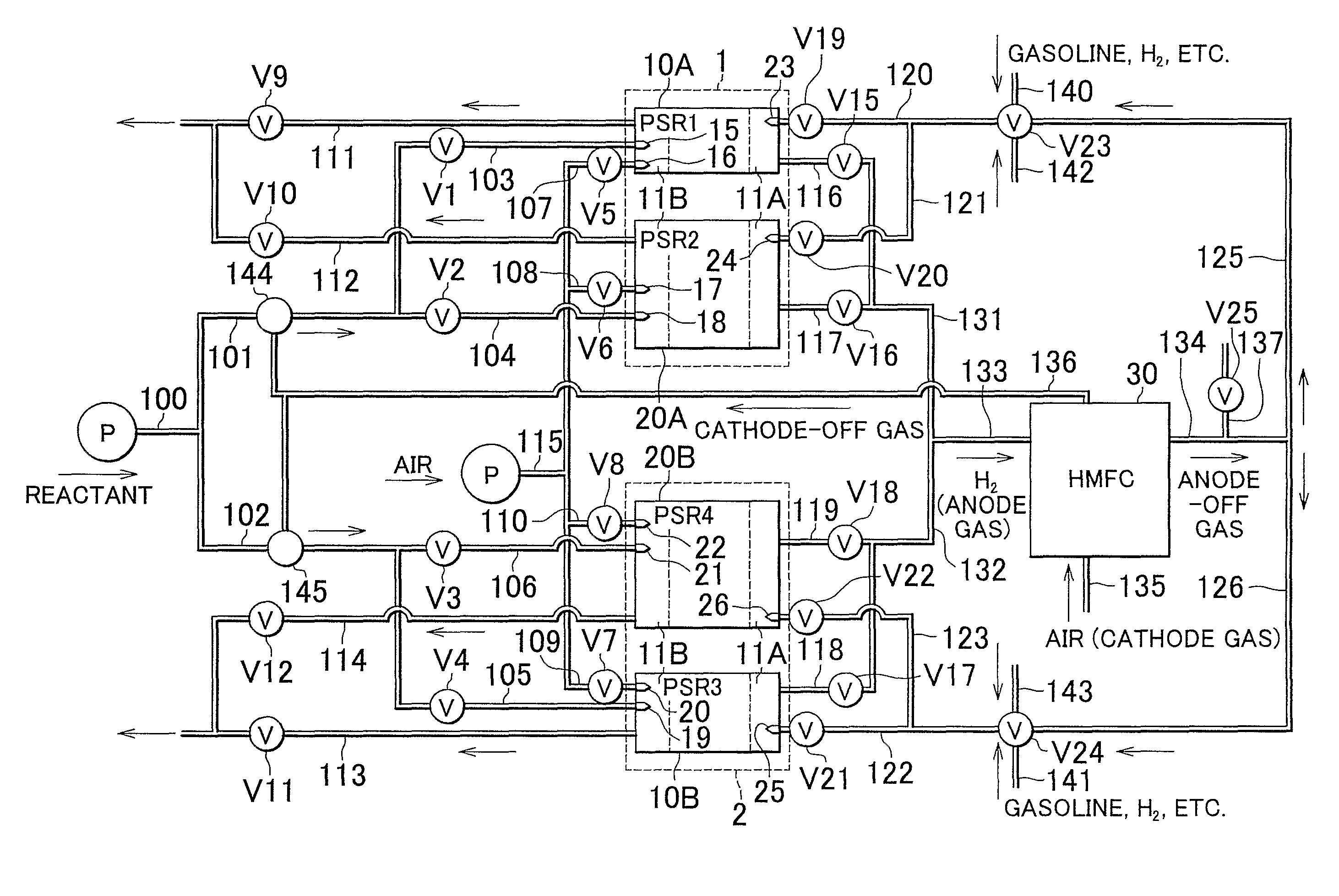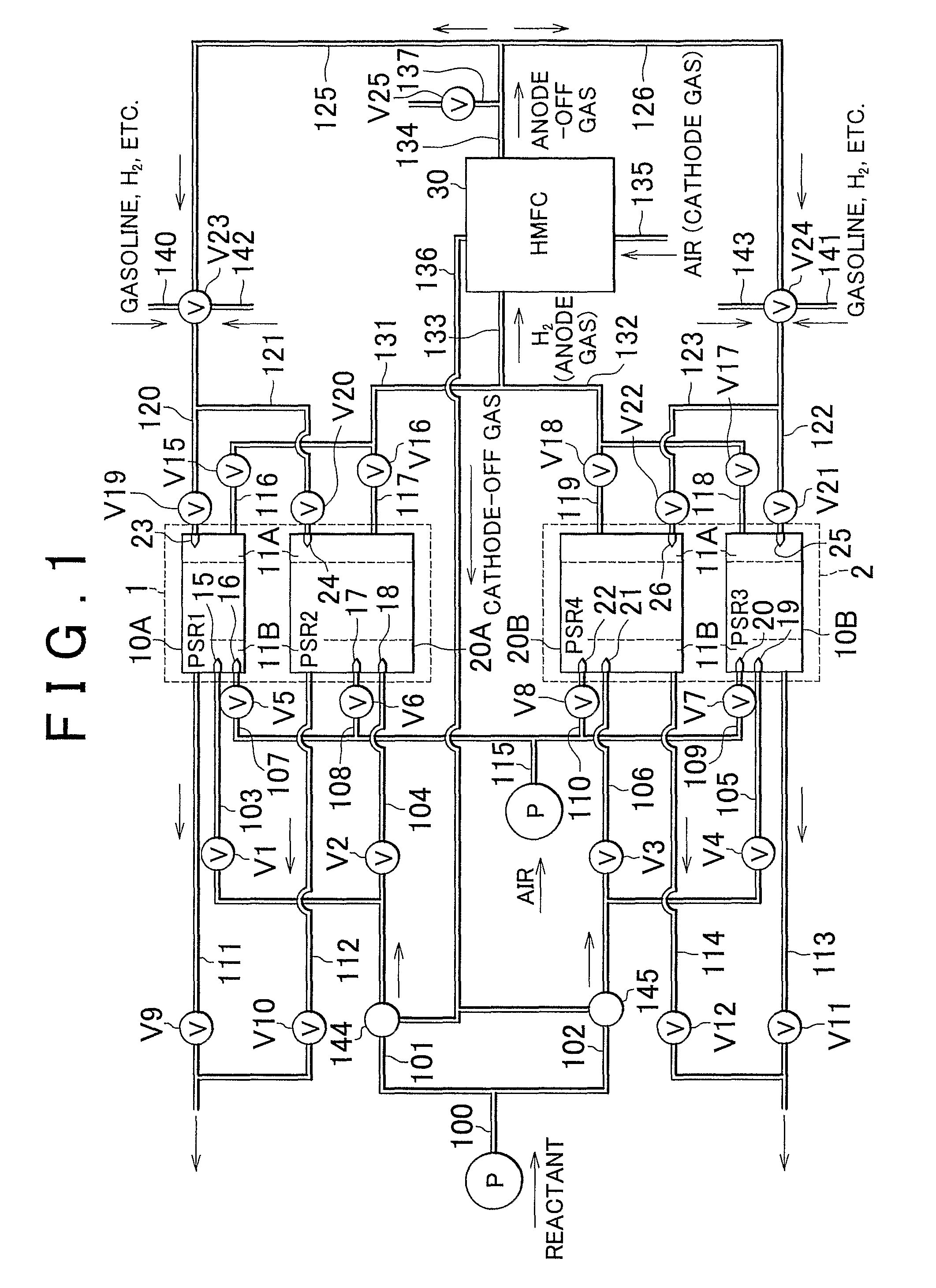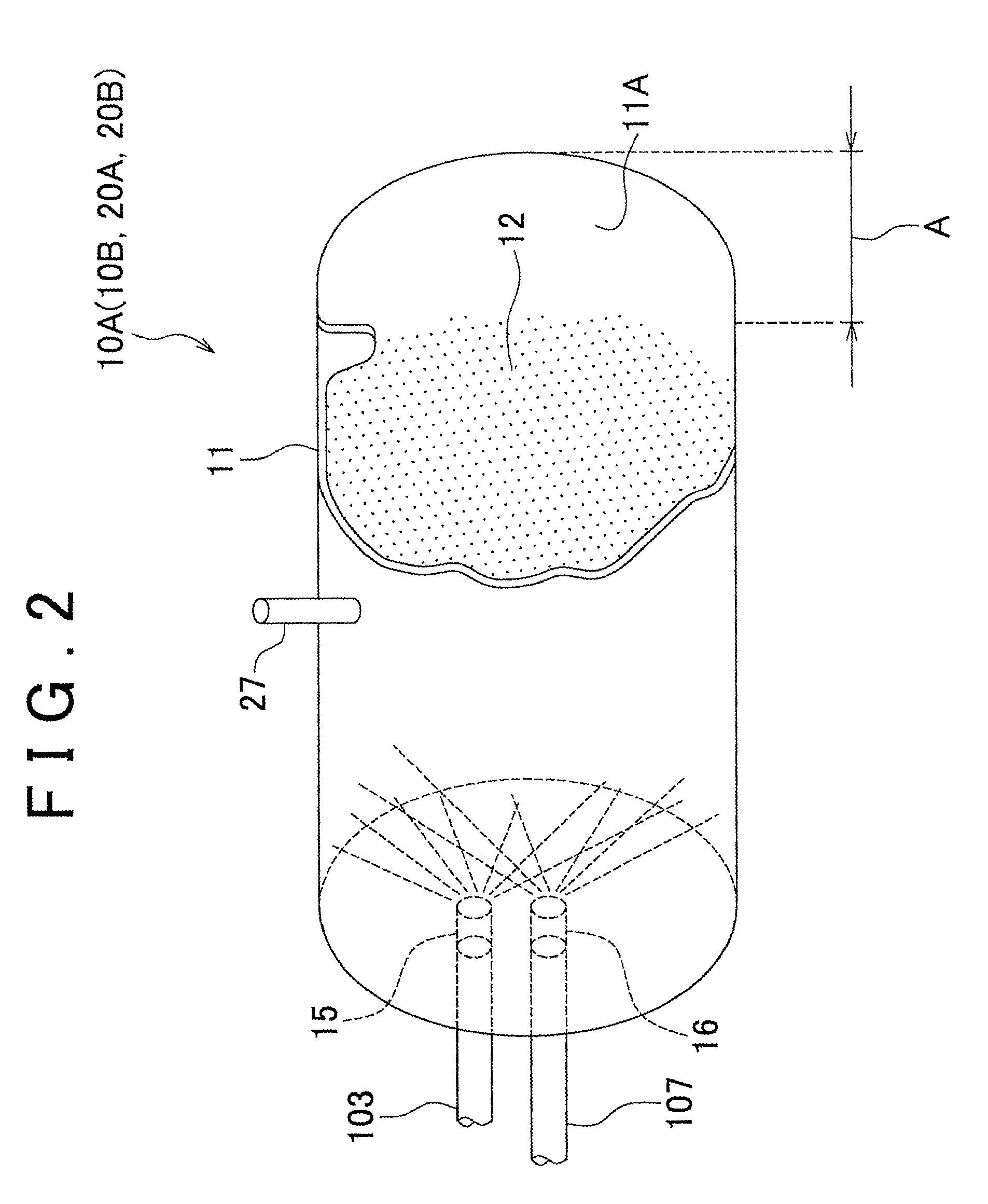Hydrogen generation device and fuel cell system including same
a fuel cell and hydrogen generation technology, applied in the direction of cell components, sustainable manufacturing/processing, instruments, etc., can solve the problems of large amount of energy expended, difficult control of storage, adsorption, and loss of liquefied hydrogen, etc., to achieve rapid and efficient generation, quick start, and rapid start
- Summary
- Abstract
- Description
- Claims
- Application Information
AI Technical Summary
Benefits of technology
Problems solved by technology
Method used
Image
Examples
first embodiment
[0049]A fuel cell system according to the invention will be described with reference to FIG. 1 to FIG. 5. The fuel cell system according to the embodiment is provided in an electric vehicle. The fuel cell system includes a hydrogen membrane fuel cell (hereinafter, referred to as “HMFC”) and a hydrogen generation device according to the invention. The HMFC includes an electrolyte membrane where proton-conductive ceramic is provided on the surface of a hydrogen-permeable metal membrane. The hydrogen generation device includes reformers that have different heat capacities. When the fuel cell system is started, the temperature of the catalyst is raised to the temperature at which the reforming reaction can be carried out (hereinafter, referred to as “reforming-start temperature”). The reformers that have the smaller heat capacity will reach the reforming-start temperature more quickly than the reformers that have the greater heat capacity. As a result, the reforming reaction is preferen...
third embodiment
[0135]A fuel cell system according to the invention will be described with reference to FIG. 7. In this embodiment, the PSR reformers where the reforming reaction should be started are selected based on the values detected by the temperature sensors when the fuel cell system is started, irrespective of the known heat capacities of the PSR reformers, and the reforming reaction is started in the selected PSR reformers.
[0136]The reactant and the exothermic material that are used in the first embodiment can be used also in the third embodiment. The same and corresponding components as those in the first embodiment will be denoted by the same reference numerals, and detailed description thereof will be omitted.
[0137]In this embodiment, when the ignition switch is turned on, the catalyst temperatures (t1, t2, t3, and t4) in all the four PSR reformers are detected, and the PSR reformers where the catalyst temperature has reached the reforming-start temperature quickly are preferentially se...
PUM
| Property | Measurement | Unit |
|---|---|---|
| operating temperature | aaaaa | aaaaa |
| diameter | aaaaa | aaaaa |
| temperature | aaaaa | aaaaa |
Abstract
Description
Claims
Application Information
 Login to View More
Login to View More - R&D
- Intellectual Property
- Life Sciences
- Materials
- Tech Scout
- Unparalleled Data Quality
- Higher Quality Content
- 60% Fewer Hallucinations
Browse by: Latest US Patents, China's latest patents, Technical Efficacy Thesaurus, Application Domain, Technology Topic, Popular Technical Reports.
© 2025 PatSnap. All rights reserved.Legal|Privacy policy|Modern Slavery Act Transparency Statement|Sitemap|About US| Contact US: help@patsnap.com



